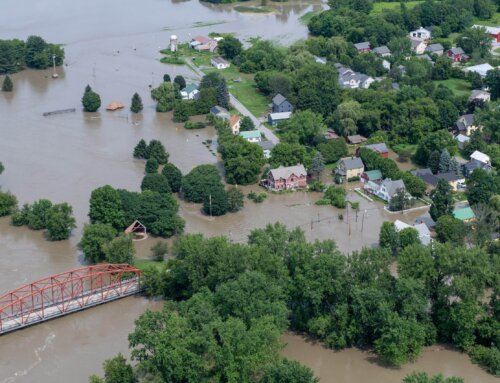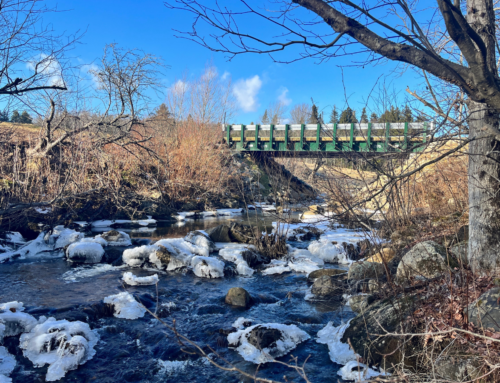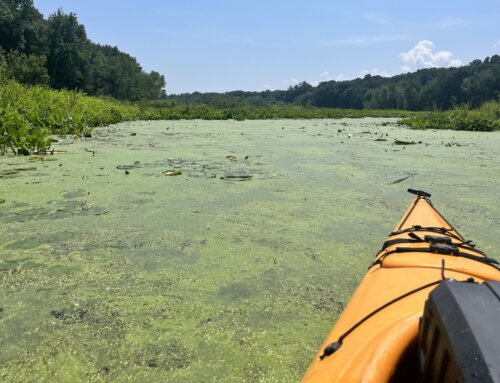Greenfield, MA – The Connecticut River Conservancy (CRC) hosts their 22nd annual Source to Sea Cleanup on Friday & Saturday, September 28 & 29. After more than two decades of cleaning up our rivers, CRC continues to work toward solutions to the persistent problem of trash pollution. The Source to Sea Cleanup is a two-day river cleanup coordinated by CRC in all four states of the 410+ mile Connecticut River basin (NH, VT, MA, CT). Each fall, thousands of volunteers remove about 50 tons of trash along rivers, streams, parks, boat launches, trails and more. For more information or to register for the event, visit ctriver.org/cleanup.
In addition to annually coordinating volunteers to clean up trash in our rivers, CRC works to prevent pollution. Plastic bags, bottles, and polystyrene (Styrofoam) are consistently the most found items during the Source to Sea Cleanup and these items never fully break down. In 2017, Cleanup volunteers collected over 26,000 plastic bottles. “We applaud the towns that have passed plastic bans locally. It’s time for a widespread ban on single-use plastic that cannot be recycled,” says Andrew Fisk, CRC Executive Director. “And it’s time to expand programs and policies that encourage consumers and businesses to move toward more sustainable, compostable alternatives.”
CRC’s philosophy is to make recycling easy, effective and widely accessible; to utilize effective incentives like Bottle Bills for recycling aluminum, plastic and glass containers; and to dis-incentivize polystyrene (Styrofoam), especially foam dock supports in favor of enclosed foam or non-foam dock materials that won’t send plastic bits into rivers.
“Our goals are to keep trash from getting in our rivers in the first place and eliminate reasons for people to illegally dump,” says Angela Chaffee, CRC’s Outreach & Events Director. “We’ve all seen the photos and videos of plastic pollution and the horrible impact it has on wildlife around the world. We can solve this problem.” This is particularly important due to China’s new import restrictions on plastic waste. The cost of plastic waste is beginning to outweigh its usefulness.
This year, CRC is asking Cleanup participants and all who enjoy our rivers to join them in demanding an end to plastic trash. Photos of plastic bags, bottles, and Styrofoam will help illustrate the problem. A petition will put pressure on legislators and corporate decision-makers to reduce plastic waste. Learn more about how you can get involved at ctriver.org/takeaction.
“We all have a responsibility to solve this problem,” says Chaffee. “We are responsible as consumers to make good choices in how we purchase and dispose of products. Manufacturers, businesses, and government are also responsible and must be held accountable. By working together, we can make a real difference for our rivers.” Over the past 22 years, Source to Sea Cleanup volunteers have removed more than 1,043 tons of trash from our rivers. CRC believes it’s time for manufacturers, businesses, and government to do their part.
Lead Source to Sea Cleanup sponsor, Eversource, is pleased to support CRC’s efforts. “It’s great to be able to take action that makes a difference,” said Eversource President of Corporate Citizenship Rod Powell. “At Eversource we’re always ready to roll up our sleeves because we believe actions speak louder than words, especially when it comes to protecting and preserving our environment. So, we’re pleased to be hitting our waterways with buckets, rakes and gloves in hand to help clean and preserve our natural heritage. Together with the folks at the Source to Sea Cleanup, we’re in good company.”
Since 1952, Connecticut River Conservancy has been the voice for the Connecticut River watershed, from source to sea. CRC collaborates with partners across four states to protect and advocate for your rivers and educate and engage communities. They bring people together to prevent pollution, improve habitat, and promote enjoyment of your rivers. Healthy rivers support healthy economies. To learn more about CRC, or to make a contribution to help protect the Connecticut River, visit ctriver.org.
###







